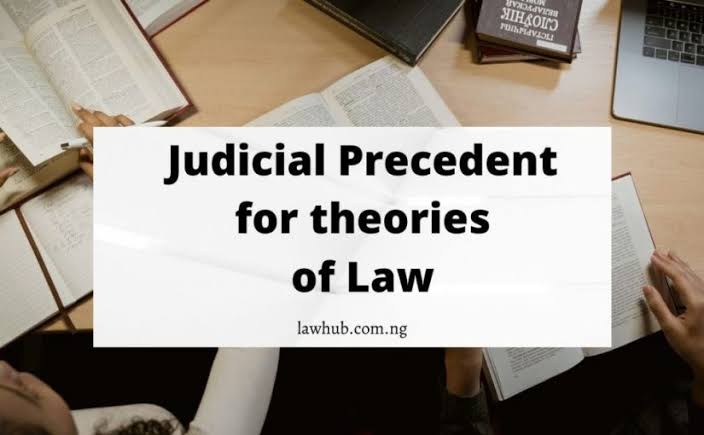N.B. This article is particular to Nigeria.
Case Laws (Judicial Precedents) for Law Theories
In answering law questions, it is important that relevant case laws be mentioned to support points. Here are a number of case laws or judicial precedents for various theories of law.
Case law for theories of law
1. Positive Theory of Law
Uwaifo V A.G. Bendel State
In this case, some of the plaintiff’s landed properties were forfeited by an edict made by the state military governor. The Supreme Court held that the courts cannot inquire into the validity of decrees and edicts, as well as the competence of the governor to make them, nor inquire into whether or not a decree or edict was a “legislative judgement.”
Click here to read about the definitions of Law + My definition
2. Natural Theory of Law
Inasa V Oshodi
In this case, the court held that the ejection of an entire family from a land for the misbehaviour of one of the familiar members was not in accordance with natural law. Even if it was the custom, such a custom was contrary to natural justice.
3. Pure Theory of Law
FGN V Zamai Lekwot & four others
In this case, the defendants were sentenced to death, in accordance with a military decree.
4. Utilitarian Theory of Law
Nzekwu V Nzekwu
A custom which permitted that the head of a deceased husband’s family could singlehandedly inherit, or alienate the deceased’s property, while the wife was alive was held to be uncivilized and repugnant to natural justice, equity and good conscience.
Also see: Definition and Meaning of Law
5. Sociological Theory of Law
Agidigbi V Agidigbi
The Supreme Court reaffirmed that the Bini customary rule of inheritance which allows the eldest son to inherit his deceased father’s personal living house is not repugnant to natural justice, equity and good conscience.
6. Historical Theory of Law
Onobruchere V Esegine
The plaintiff sued for a parcel of land which was pledged to the defendants many years earlier. The defendants asserted that the land was sold to them. It was common ground that the land originally belonged to the plaintiffs. The Supreme Court held unanimously that under the principles of customary law, a pledger always retains the title to a pledged land, which cannot be defeated by a pledge. A pledger has a perpetual right to redeem a pledged land, no matter how long the land has been privileged.
7. Realist Theory of Law
R V Holland
The finger of the deceased was injured by the accused. A surgeon strongly recommended that the finger be amputated, but the deceased rejected the advice. The finger was later affected by lockjaw, and the finger was subsequently amputated, but it was already too late and the deceased died from the lockjaw. The accused was charged with murder and he contended that the refusal of the deceased to accept the advice to amputate the finger was the cause of his death. The court rejected this argument and held that the injury inflicted by the accused was the cause of death. The court convicted the accused for murder.
See also: Comparison and Contrast of the Natural Theory of Law and Legal Positivism
These are some of the many case laws that can be used to support works on or arguments for these theories of law. You could check out several more in law reports, textbooks, journals etc.
Note that these cases may overlap in the theories they apply to. The implication of this is that a case law that can be used to support the Natural theory of law can also be used for the Sociological theory, or Utilitarian theory.
Hence, if you learn these case laws very well, inter alia, writing about the theories of law would be a win-win project for you.
Should you have any question, do not hesitate to drop your comment below.
Credits:
Introduction to Nigerian Legal Method – Abiola Sanni
EZE Malemi – The Nigerian Legal Methods


Leave a Reply